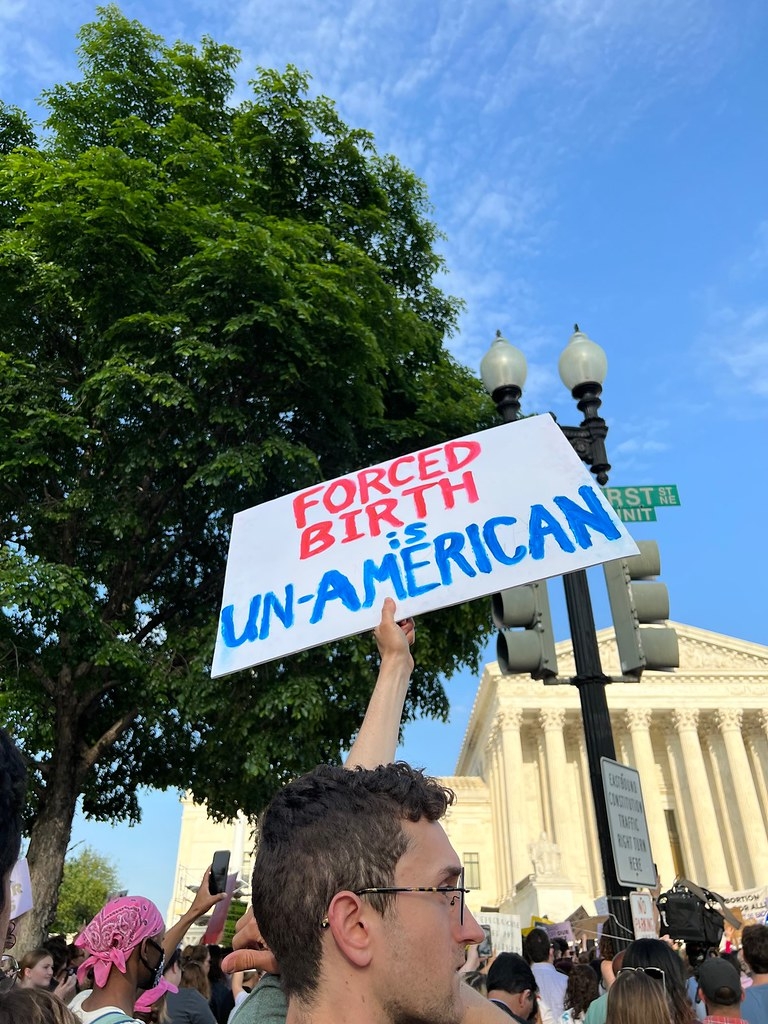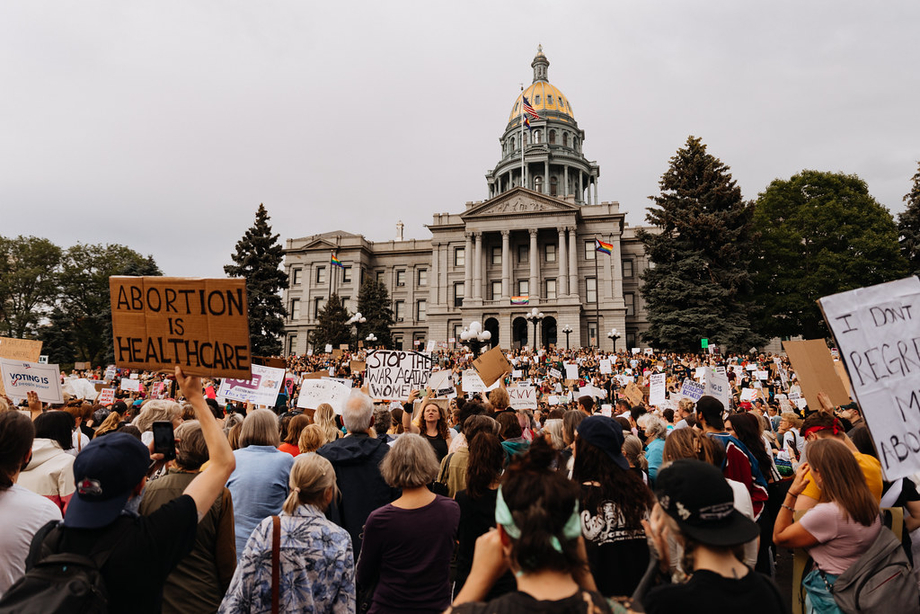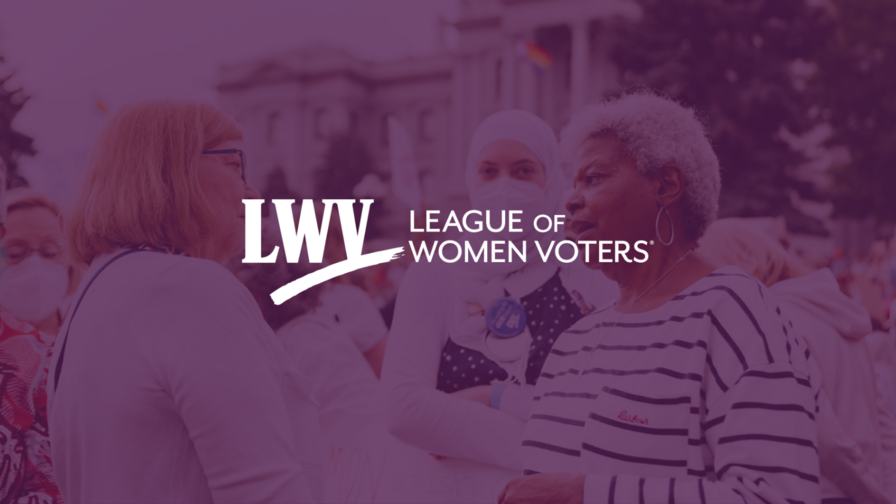One Year After Dobbs: The Emotional Impact of Anti-Abortion Laws
This is the second blog in a three-part series on the impact of the Supreme Court Dobbs v. Jackson Women's Health Organization decision. Check back on our blog for the final installment in our series focusing on the Court's decision and voting rights.
Last year’s SCOTUS decision repealing the right to abortion continues to affect millions of people nationwide. Yet while most of us are familiar with its impact on family planning, I wonder if we all understand the full repercussions on every aspect of our lives.
Previously, I shared my perspective as a former obstetric gynecologist and medical director for Planned Parenthood of North Central States on the medical repercussions of Dobbs v. Jackson Women’s Health Organization. The following are my observations on the decision’s enormous psychosocial impact on mental and familial health.
Abortion Care’s Emotional Impact
Pregnancy is already a time of increased risk for mental health symptoms. According to psychiatrist Elisabeth Netherton, MD. “[p]regnancy and delivery can be traumatic under the best of circumstances.” I saw this in my own work many times.

Imagine how much more distressing these experiences are when you’re forced into them.
Indeed, people who cannot terminate their pregnancies are suspected to have higher rates of postpartum mental health issues; studies also suggest that individuals who complete unwanted pregnancies experience poorer mental health later in life.
“Rigorous, long-term psychological research demonstrates clearly that people who are denied abortions are more likely to experience higher levels of anxiety, lower life satisfaction, and lower self-esteem compared with those who are able to obtain abortions,” said APA President Frank C. Worrell, PhD.
This is even more complicated in already-traumatic situations like non-viable pregnancies or sexual assault.
The last thing I would want as a practitioner would be to increase the mental and emotional load my patients were carrying by denying them reproductive care. These factors are just as crucial to their — and their family’s — well-being as their physiological experiences.
Families Should Decide, Not Politicians
I’ve seen firsthand how families are impacted by abortion care.
Any parent will tell you that a new child forever alters your family’s financial situation, relational dynamics, and more. That’s just one reason I believe in every potential parent’s right to decide whether to carry and/or have a child.
Consider the following (very real) hypotheticals where pregnancy may not be in a family’s best interest: all of which I have witnessed.
-
A family with children whose health, educational, and other needs require their full budget;
-
A family dealing with medical challenges in a parent, spouse, or child, that demand all their money, time, and energy;
-
A family in which the parent is already juggling so many responsibilities that it’s a challenge to meet everyone’s emotional needs.
These are just a few common examples that make carrying and/or raising a child more complicated – examples I saw on a regular basis as an OB-GYN.
It goes to show that no one is more equipped to decide whether a family should take that on than the family itself.

Once, a client of mine came in discovered she was pregnant. She didn’t know what to do, so she consulted someone who knew and loved her profoundly: her grandmother. After consulting with her grandmother, the woman made the decision to terminate her pregnancy. It wasn’t an easy decision by any means, but she made her choice after assessing her unique situation with someone who loved her.
This is exactly how these decisions should be made: by the people (and families) they impact.
The Creation of Reproductive Care Deserts
My experience working with the young woman and her grandmother reminds me of a sobering fact; today, grandmothers who won the right to choose are seeing their grandchildren lose them.
I remember my classmates and fellow trainees at the University of Iowa and how inspired we were to study and provide reproductive health care. Today, many students and residents studying obstetrics and gynecology no longer have reproductive freedom. Others may be wondering whether it’s worthwhile to pursue the specialty of OB-GYN if they’ll be unable to provide complete reproductive care to patients. I can only imagine how heartbroken I would be if I’d been pursuing my education while knowing I couldn’t truly center a patient’s choices in their care.
Earlier this month, I testified alongside two OB-GYN residency students at a hearing around Iowa’s new six-week abortion ban. Understandably, the residents were devastated by the Iowa Supreme Court’s decision to uphold the ban (which has been temporarily blocked while the courts assess its constitutionality). They had initially planned to provide OB-GYN and reproductive care in Iowa, but because of the Iowa Supreme Court’s ruling, they will leave the state when their training is complete. Their stories show how anti-abortion restrictions are creating reproductive care deserts across the country; Iowans will now be deprived of two practitioners who not only would have provided abortion care but also all other types of obstetric, gynecological care.
Stay Updated
Keep up with our work empowering women.
I became an obstetric gynecologist because I believe that the health – physical, mental, and familial – of women and those who can become pregnant is important. Access to care is their right, and the decision to access that care should be their choice.
How will we fight back now that personally motivated politicians have taken away that right? My next blog will focus on the power of women in politics and how Dobbs impacted our position in this democracy. For now, I recommend supporting the people in your life who can become pregnant and contributing to organizations like Planned Parenthood, the National Network of Abortion Funds, and many other local and state-based organizations that support people within their own communities. Let’s not forget that this includes many faith-based organizations, such as the Religious Coalition for Reproductive Choice.
It will take a united effort across all fronts to regain our reproductive rights.
Our minds, bodies, and families are on the line. We must keep fighting.
The Latest from the League
One year ago today, the Supreme Court of the US took away our right to bodily autonomy.
LWV President Dr. Deborah Turner launches her three-part blog series about the impact of Dobbs and other anti-abortion legislation with a look at the medical impact of anti-abortion laws.
LWVUS President Dr. Deborah Turner issued the following statement after the Supreme Court issued a stay of a lower court decision that limited access to the abortion drug mifepristone while the issue is heard on appeal.
There is only one way we can ensure that the promise of democracy is kept: by fervently participating in our nation’s political processes, ensuring our voices are heard.
Sign Up For Email
Keep up with the League. Receive emails to your inbox!
Donate to support our work
to empower voters and defend democracy.





